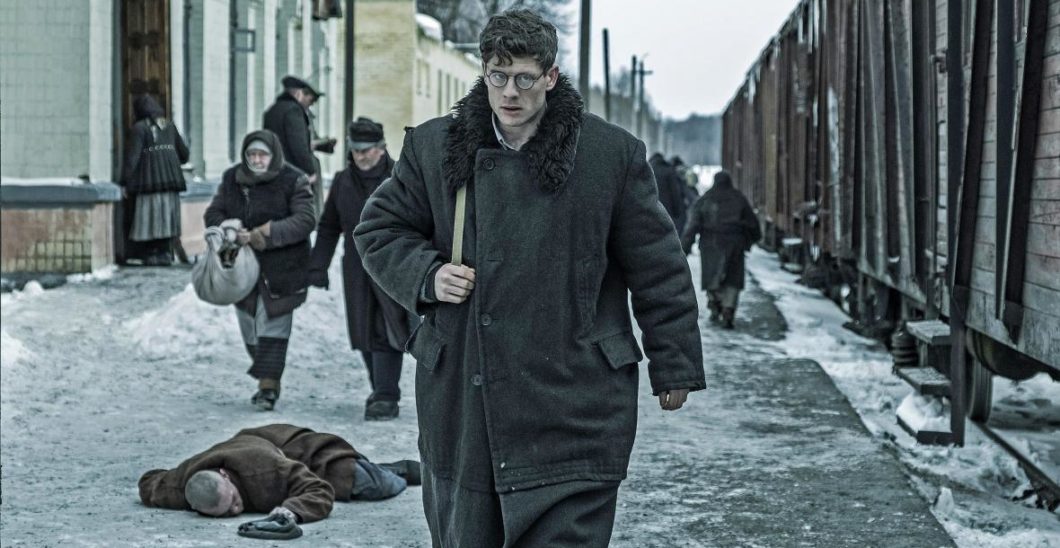Daniel Klein and Michael Munger are right to worry about tyranny. But reforming the system that oligarchic tyrants control is a fool's errand.
Unmasking Tyranny's Lies
Leo Strauss once said that the most damning indictment of modern political science, and the beliefs that guide it, is the inability to recognize tyranny. Given our elites’ education and scientific prestige, this leads to attacks not on tyranny, but on the few people whose common sense and courage leads them to tell the truth. Hence Enlightenment cowardice in face of fascism and Nazism in the 1930s, and the much worse Enlightenment cowardice in face of Communism, a far more dangerous tyranny, global, longer-lived, armed with nuclear weapons, and one our liberal and progressive elites seem unable to abandon.
We’ve learned from George Orwell to suspect humanitarian elites. He was the left-wing intellectual who turned against the USSR and Communism only to learn to his horror that the British press and publishing industry were less interested in the truth than in protecting Stalin’s reputation, whether in the form of reporting, like Homage to Catalonia, or satire, like Animal Farm. The most sophisticated people, who claimed to know how to make the future and to rid mankind of past misery, became willing lackeys of the most murderous regime known to man—and they did it on principle, since History demanded it.
Before Orwell, the man who learned the ugly truth and, to his horror, was silenced by his own free British countrymen was Gareth Jones, for the first time the subject of a remarkable biographical film by Oscar-nominated Polish director Agnieszka Holland, Mr. Jones. Her previous movie, Burning Bush, honored another anti-Communist hero’s legacy—Jan Palach, who immolated himself in protest against the brutal Soviet invasion of Czechoslovakia after the 1968 Prague Spring. Holland herself was a student protester in 1968, arrested and imprisoned along with many other dissidents when the freedom movement was violently suppressed.
The movie is framed such that Orwell (played by Joseph Mawle) is shown to have learned the ugly truth about Stalin from Jones (played by James Norton), one man of the left passing the torch to another, until the daring succeed in telling tell the truth about tyranny. This fictional device tells an important truth: Orwell achieved the glory Jones was first to deserve. But we have finally come to a point where we don’t need to rely solely on fiction to tell the truth about communism—historical reports and biographies are now possible, and we can retrieve our memories.
The Evils of Liberalism
The movie tells the story of Jones’s daring travels through the USSR in 1933. Jones used his connection to former British PM Lloyd George to get to Moscow, where he witnessed the corruption of the press corps, willing songbirds in a Soviet gilded cage, and so he decided to risk his life to see for himself the worst mass murder in history at that point, Stalin’s decision to starve the Ukrainians to death by the millions, the Holodomor.
Moscow in 1933 is a place of terrible moral corruption and terror, crimes papered over by the depraved and cynical correspondent of the New York Times, Walter Duranty (played by Peter Sarsgaard). Duranty infamously won a Pulitzer for justifying Stalin’s tyranny to his liberal audience, which the NYT has ever since refused to return. He followed it up by lying systematically about the Holodomor and discrediting Gareth Jones when he tried to publish his reports.
Here, the film lets us witness something shocking, the reduction of journalism to propaganda, the suicide of Enlightenment. Truth-telling was replaced by mythmaking because Western elites sympathetic to communism did not have the courage to face the truth apart from their own attempt to force reality to fit their ideology. They stopped believing in the legitimacy of government with the consent of the governed, so nothing remained to prevent them from corruption. Humanism was thus reduced to Communist utopian fantasies which justify any number of corpses. The pieties of Enlightenment turn into a death cult requiring human sacrifices—Orwell’s famous omelet.
The oracles of this religion live lives of sybaritic orgies and personal hypocrisy. People back home may believe what they read in the newspapers, but the journalists writing those reports are lackeys of tyranny, enjoying their perks as a form of self-loathing. Their freedom is constrained by permanent surveillance, their curiosity silenced by fear, and even human decency is sacrificed since they have to accept that their own acquaintance and countrymen are occasionally humiliated, or disappeared. They still believe they are above bourgeois moralism, part of a new world—but they are below any self-respect, since they all know the cynicism that accompanies terror in Moscow. They are trapped in a lie they keep spreading around the world.
Among this decadence, Jones has to decide what kind of man he will be. His shock and his contempt convince him to see what everyone else pretends not to notice or take seriously, and that leads him to follow the rumors about starvation in the Ukraine, the renowned breadbasket of Russia, indeed of Europe. This leads him to see that what corrupt liberals have done to the goods of the soul, the Communists they worship have done to the goods of the body. Lies and starvation go together.
The Evils of Communism
Jones manages to escape supervision by his Soviet handlers by jumping trains and heads from Moscow 700 miles South to the Ukraine, a descent into horror worse than the moral corruption he had already witnessed. You have to watch the movie for yourself—what it means to see human beings reduced to beasts and then to corpses and then to less than that. In his attempt to see what everyone else tells lies about, Jones witnesses how Stalin violated the very foundations of all civilization in natural law, as a desperate woman in a breadline tells him.
This revelation is the most important part of Jones’s youthful adventure, which had started as a mere hunch that the Five Year Plans can’t really be working. Why would such a successful new regime be so desperately in need of basic imports? Enthusiasm for the future of mankind is hard to square with the unceasing lying. Following common sense, Jones’s pursuit of the truth leads him away from ideology, continuously drawing him closer to events.
The movie shows in an artful and wonderful way what it means to believe in the goodness of the truth—Jones, on film as in reality, won’t stop trying to find out what’s really happening, despite the mounting evidence that it will take him to hell. Jones embodies Solzhenitsyn’s moral demand—live not by lies—and it seems to strengthen him enough to face something no one else will.
Putting liberalism and Communism together, propaganda and tyranny, might seem an accident, but the logic of the movie is as unyielding as its grasp of the historical facts is solid. The end result of utopian humanism is the worst inhumanity imaginable. The more unnecessary and paradoxical the slaughter, the better it serves its purpose. Sentimentality leads to cruelty, the promise of an angelic life to bestiality. The radical new world must be built on the corpses of the old world.
Human nature once abandoned in favor of fantasies, the good things it governs turn into evils. Mr. Jones shows that a caricature of life, once enacted, turns deadly. Systematic lying, or propaganda, is both a necessary cover for and an unwitting testimony to the systematic violation of human nature. To believe it requires madness, either the madness of idealism, in Europe, or that of terror, in Russia.
The Problem of Tyranny
It’s hard to say how he maintained his belief in legitimate government when he saw, on his return to England, having dared risk his life for the truth, that neither the government nor the press is willing to tell that truth. Cowardly elites are a danger to a regime unlike any other. If those who most benefit from a regime and are most admired dare not act to defend it, who will? Here, the movie suggests democratic weakness in face of tyranny prepared World War II. In the event, the eccentric American press magnate William Randolph Hearst—the inspiration for Citizen Kane and son of the Deadwood villain—gives Jones a hearing, since by chance he is in Wales, and is willing to let him tell his story.
Mr. Jones’s weakness is a curious insistence on innocence. Gareth Jones is not portrayed as a brilliant young man with a very good education, including Cambridge, which gave him command of French, German, and Russian. Little is made of his courage, without which he would not have made his name as the first man to interview Hitler on his accession to power. Instead, he’s quite baffled by all the immorality of this world, a lamb among wolves. But Jones died, probably murdered, probably by the Soviets, in Manchuria, in 1935, before the age of 30. He was intrepid, not shy—his life-risking adventure throughout Russia proves that. Greatness was denied him by corruption and cowardice on his return to England. For my part, I think that’s what sent him to the edges of the world and his youthful death.
Journalism was not Jones’s first calling—he had previously been a foreign affairs adviser for former Liberal PM Lloyd George, who had seen Britain through World War I only to lead his party to self-destruction. Indeed, George lived to see his country brought to the brink of destruction in World War II. An entire generation of elites failed and the comparison with Jones reveals, beyond good intentions, their corruption. But what we need is prudence, not innocence—we’re around to talk about these things because Churchill eventually became Prime Minister, the only man willing to face down tyranny.
We are again facing a situation where the press either lies systematically or downplays the dangerous things done by a Communist tyranny that has total control of information. Even in the middle of a global pandemic during which they have been thrown out of China, journalists are unserious. Liberalism has not given up its utopian hopes or its flirting with tyranny. Our elites are back to the habits of the 1930s, ignoring ugly truths or even denying that the evil staring them in the face exists. We should be so lucky to have men like Gareth Jones around and we should be so wise as to listen to them.
Readers interested in hearing more about Mr. Jones can listen to my recent podcast, and those wishing learning more about Agniezska Holland’s work remembering anti-Communist heroes, should read Law & Liberty’s Flagg Taylor on her HBO mini-series on Jan Palach, Burning Bush (here and here), and listen to our podcast on it on the 50th anniversary of the Prague Spring (Apple or soundcloud).



